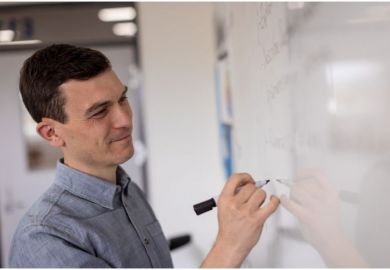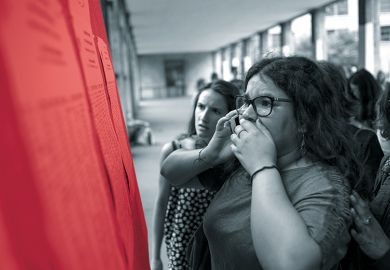A US federal appeals court last week ruled that the University of Hawaii was within its rights to deny permission to a candidate for teacher certification to participate in a required student teaching programme based on his statements on adult-child sex and on schoolchildren with disabilities.
Mark Oyama – who had a bachelor’s degree and master’s degree at the time – met the academic requirements in the teacher certification programme. But the university found that his statements against bans on adult-child sex and that most special education students were “fakers” made him unsuitable to become a teacher, Inside Higher Ed reported. Oyama sued in federal court, charging that the university violated his First Amendment rights. A lower court rejected his suit, and the appeals court upheld that decision.
In doing so, the US Court of Appeals for the Ninth Circuit said that its decision was based primarily on case law about the role that colleges and universities play in certifying teachers, and the role of higher education in professional certification. The court stressed that it did not want to act in a way that would limit academic freedom or the right of students to express controversial views. In this case, the appeals court found, the university’s decision was based on national professional standards and specific job requirements for teachers, and thus was constitutional.
Professors started to express concerns about Oyama based on statements that he made in several courses. In a paper for one course, he wrote: “Personally, I think that online child predation should be legal, and find it ridiculous that one could be arrested for comments they make on the Internet. I even think that real-life child predation should be legal, provided that the child is consentual [sic]. Basically from my point of view, the age of consent should be either 0, or whatever age a child is when puberty begins.”
Oyama’s professor discussed the paper with him, and Oyama said that “it would be fine” for a 12-year-old student to have a “consensual” relationship with a teacher. Reminded that state law would require Oyama to report such a relationship, he said he would follow the law but that he would be reporting something that he did not believe was wrong.
In another class, Oyama said that he doubted the value of including students with significant disabilities in mainstream classroom settings. Further, he said that he doubted that some students who receive assistance deserve it. He said that he believed nine in 10 special education students were “fakers”, and that he was “not convinced” that many who say they have disabilities really have them. Rather, he said, many benefit from “the crude opinions of psychologists and psychiatrists”.
Oyama cited a range of First Amendment protections, some of which apply to students and others to public employees (including employees of public colleges and universities). While the appeals court noted that there are indeed cases that limit the free speech rights of both students and employees (with most of the student limits coming at the primary and secondary level), it found that these cases did raise issues of academic freedom, which the court asserted should be protected by the judicial system.
“As a student at the University of Hawaii, Oyama enjoyed greater freedom to test his ideas, critique professional conventions and develop into a more mature professional than he would as a government employee. To hold Oyama to the same standard as we hold public employees would deprive him of rights the First Amendment guarantees him as a public university student,” the court said.
The relevant standard for consideration, the court found, could be found in cases related to certification. In these disputes, colleges and universities have in some cases denied students the right to continue in programmes or to participate in professional experiences such as student teaching. If these decisions are based on the personal beliefs of faculty members, they may not be justified, courts have ruled. But the appeals court said that universities appropriately receive deference from courts if they are applying “defined professional standards” and doing so in “narrowly tailored ways”.
In this case, the appeals court said that the University of Hawaii based its decision on what national accrediting bodies and state laws say about the duty of schoolteachers to report and prevent sexual relationships between adults and children, and to assure that children with disabilities are educated in equitable and supportive ways. The university had a reasonable basis to doubt that Oyama could comply with those requirements, the appeals court said, and so was justified in denying him participation in the student teaching programme.
“The First Amendment does not prevent the university from denying Oyama’s student teaching application after determining that his statements reflected a failure to absorb these defined and established professional standards,” the court said. The decision added that “we emphasize that the university did not ‘establish’ or ‘define’ these standards by fiat. Its decision was not, in other words, based on school policies untethered to any external standards, regulations or statutes governing the profession.”
Further, the appeals court said that it did not matter that the university’s decision was based on Oyama’s statements, not actions.
“That Oyama did not in fact consummate the acts proscribed by these professional standards does not mean the university’s decision to deny his application was not directly related to them,” the decision said.
“State policy required the university to ‘verify’ Oyama’s ‘ability to function effectively in department classrooms’ before approving his student teaching application. Therefore, the university’s decision was, by necessity, prospective in nature. Oyama stood in the doorway of the teaching profession; he was not at liberty to step inside and break the house rules. But that does not mean that the university was obligated to invite him in. Rather, the university could look at what Oyama said as an indication of what he would do once certified.” (Italics in this paragraph are from the court decision.)
Eric Seitz, Oyama’s lawyer, told the Associated Press that he planned to ask the appeals court to reconsider, and to take the case to the Supreme Court if that doesn’t work. Seitz said that Oyama, who earned his undergraduate degree at the California Institute of Technology, pursued the teaching certificate as he wanted to help Hawaii with its shortage of math and science teachers. Seitz said Oyama is now working in his father’s electronics business.
Seitz told the AP that Oyama was socially awkward and that he should not be punished for opinions on which he never acted. “To me, it is outrageous for expressions of opinions – however misguided – in a classroom discussion that a student can be essentially kicked out of his educational programme,” he said.
Register to continue
Why register?
- Registration is free and only takes a moment
- Once registered, you can read 3 articles a month
- Sign up for our newsletter
Subscribe
Or subscribe for unlimited access to:
- Unlimited access to news, views, insights & reviews
- Digital editions
- Digital access to THE’s university and college rankings analysis
Already registered or a current subscriber? Login




